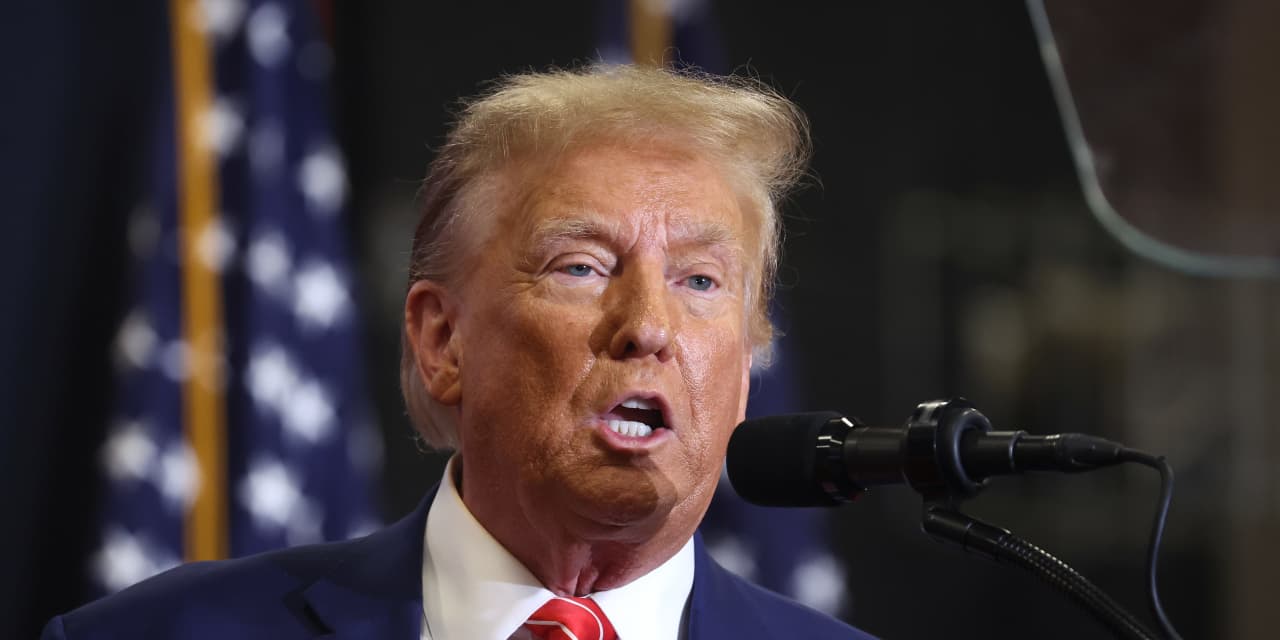William Walton first met Donald Trump roughly 40 years ago, when he was a banker working for the Pritzker family of Chicago during negotiations between the future forty-fifth president and one of America’s wealthiest dynasties over a joint real-estate venture.
“I was on the other side of a few deals with him,” Walton said of Trump. “We’re about the same age, but I was just a young vice president and he was Donald Trump.”
The famed dealmaker was already a tabloid celebrity at this point, but Walton was most impressed with Trump’s bare-knuckled negotiating tactics and manifest charisma, qualities he believes make him a first-rate political leader and the best man for the job as leader of the free world.
Walton went on to become a finance and private-equity executive and a fixture of Washington, D.C.’s business community, and his support for Trump in the 2016 presidential campaign helped secure a role as the point man for Trump’s Treasury Department transition team in the leadup to the January 2017 inauguration.
See also: Iowa GOP caucuses: Haley now 2nd in most recent polls, while Trump has a key support level to hit
He said that while the policy centerpiece of Trump’s first term was a multi-trillion dollar tax cut for businesses and households that sent corporate profits and the stock market
SPX
to new records, a second Trump administration would likely focus its energies on two areas: climate and immigration.
“Biden’s wind-and-solar jihad, his edicts to move toward electric vehicles are an economic disaster,” Walton said. “We need to refocus on energy sources that are economical and practical.”
Former President Trump has recently blasted moves by the Biden administration to encourage Americans to transition to more climate-friendly electric cars through tax rebates and new proposed pollution standards for the auto industry.
He has repeatedly attacked electric vehicles
DRIV
as impractical and too expensive and has pledged to work to repeal President Joe Biden’s signature climate law that vastly expanded subsidies for electric cars and green energy production.
Trump has also slammed the impact of the electric-vehicle transition on auto workers, since electric cars can require less labor to assemble, and the advantages an electric-car economy bestows on rival countries where minerals essential for battery construction must be sourced.
Walton said that despite data showing that U.S. oil production is at an all-time high, the Biden administration’s reluctance to tout the fact is one indication that it hopes in the long run to curb fossil-fuel extraction.
Read more: Trump says he hopes market crashes in 2024 under Biden: ‘I don’t want to be Herbert Hoover’
“You don’t hear about the Biden administration talk about economic growth,” Walton said. “Because behind the climate agenda is a degrowth agenda. The degrowth agenda is the subtext of what this administration has been about, and that’s bad for America and it’s bad for the world.”
While President Biden has taken steps to curb offshore oil drilling and fossil-fuel extraction on federal lands, the majority of his climate agenda has come in the form of subsidies for clean-energy production rather than making fossil-fuel production more burdensome, experts say.
The administration has also publicized its efforts to lower gasoline prices at the pump, including releasing oil from the strategic petroleum reserve. “My administration has not stopped or slowed U.S. oil production, quite the opposite,” Biden said in a 2022 speech on gas prices.
Meanwhile, climate scientists say that the electric-car transition is necessary to reduce demand for fossil fuels and to avoid the worst effects of global climate change.
A second Trump administration will also take other steps that Walton believes will lower prices for consumers and boost economic growth — including cutting regulations and ridding the federal bureaucracy of diversity, equity and inclusion goals while encouraging corporate America to do the same.
Walton grants that Trump’s plans to curb illegal immigration, including the former president’s recent pledge to undertake “the largest deportation operation in American history,” would have more ambiguous economic effects like potentially exacerbating worker shortages that have recently plagued the U.S. services sector.
He noted that a record number of unauthorized migrants entering the United States is not only unfair to those who immigrated to the U.S. legally, but it is potentially a security threat as well.
“If you’ve got people who were brought to the country who are hostile actors to the United States,” Walton said, “I’d suffer a little inflation in order to get those people out.”
Read the full article here








